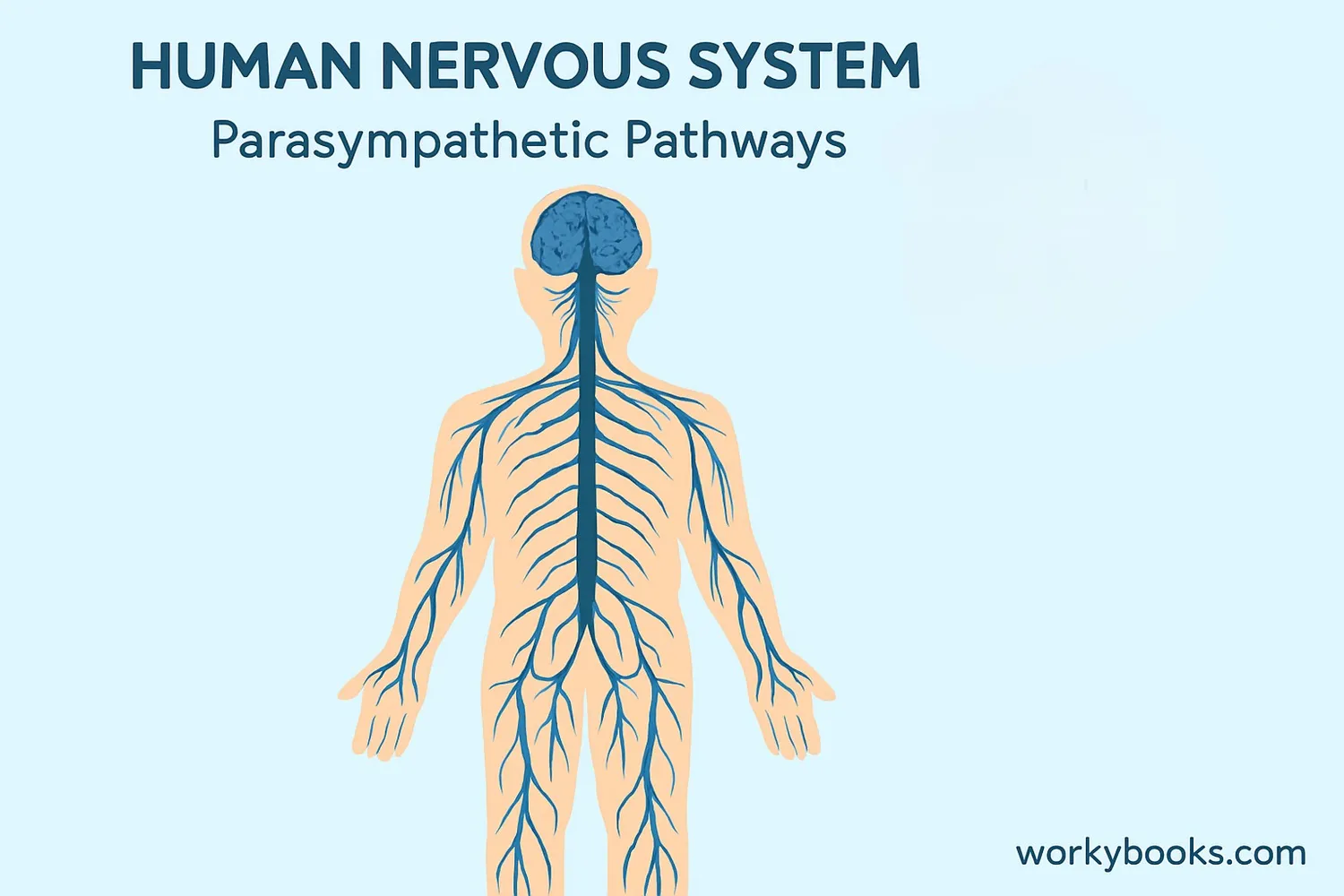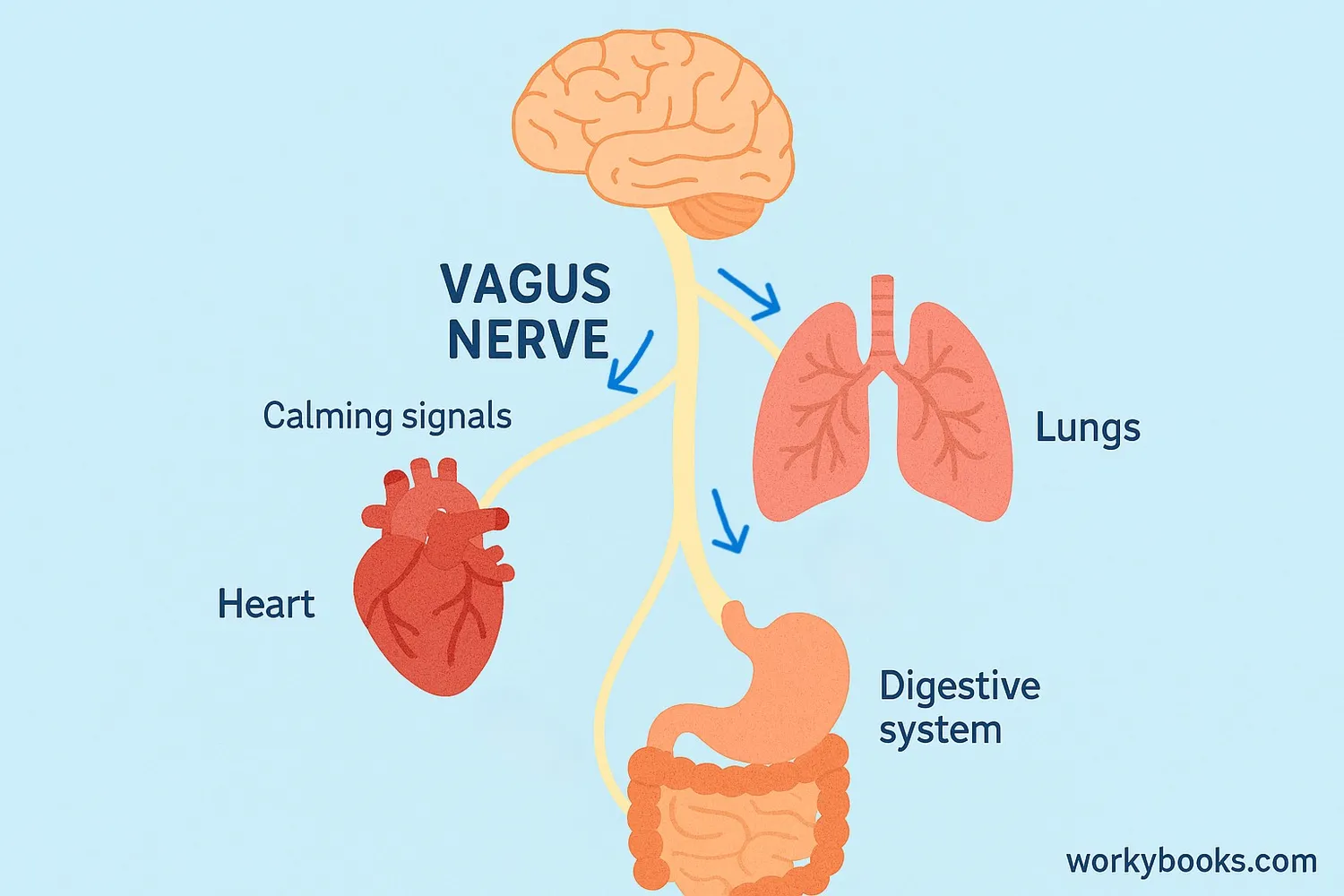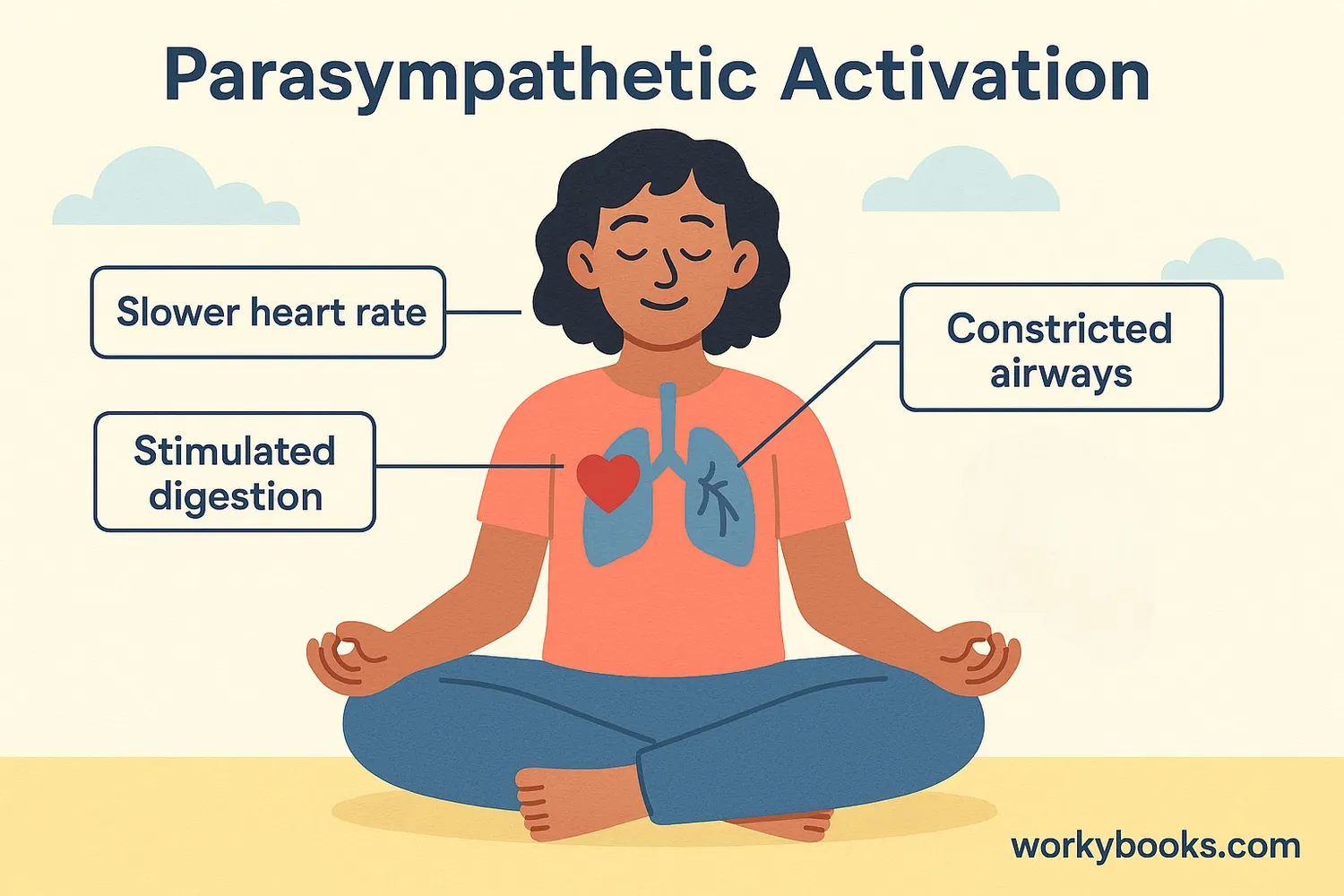Parasympathetic Nervous System - Definition, Examples, Quiz, FAQ, Trivia
Discover how your body's "rest and digest" system keeps you calm and healthy
What is the Parasympathetic Nervous System?

The parasympathetic nervous system (PSNS) is part of your autonomic nervous system that controls your body's "rest and digest" activities. It's like your body's built-in relaxation system that helps you calm down after excitement or danger.
Think of your nervous system as having two main teams: the "gas pedal" (sympathetic system for action) and the "brake pedal" (parasympathetic system for relaxation). The PSNS is your brake pedal - it slows down your heart rate, helps digestion, and saves energy when you're resting.
Did You Know?
The parasympathetic nervous system is sometimes called the "rest and digest" system, while its counterpart is called the "fight or flight" system.
How the Parasympathetic Nervous System Works

The parasympathetic nervous system works through a special nerve called the vagus nerve, which acts like a superhighway carrying messages from your brain to your organs. Here's how this amazing calming system works:
Brain Signals
Your brain detects when you're safe and relaxed
Nerve Activation
The vagus nerve carries calming signals to your body
Organ Response
Organs switch to "rest and digest" mode
Body Functions
Heart rate slows, digestion improves, energy saves
When your PSNS is active, you might notice:
• Your breathing becomes slower and deeper
• Your heart beats more slowly and steadily
• Your digestion works better
• Your muscles relax
• Your body saves and stores energy
Vagus Nerve Superhighway
The vagus nerve is the longest cranial nerve in your body, connecting your brain to your heart, lungs, stomach, and intestines!
Why the Parasympathetic Nervous System is Important

The parasympathetic nervous system is essential for your health and wellbeing! Here's why it's so important:
Heart Health
Lowers heart rate and blood pressure, reducing stress on your cardiovascular system
Digestion
Stimulates digestion and nutrient absorption when you're relaxed
Energy Conservation
Helps your body save and store energy for when you need it
Without a properly working parasympathetic nervous system, your body would:
• Stay in constant "alert mode"
• Have difficulty digesting food properly
• Struggle to relax and recover from stress
• Experience ongoing elevated heart rate and blood pressure
• Have trouble sleeping deeply
The parasympathetic nervous system works in balance with the sympathetic nervous system to keep your body in harmony - ready for action when needed, but able to rest and recover too!
Parasympathetic Nervous System Quiz
Test your knowledge with this quiz! Answer all 5 questions to see how much you've learned.
Frequently Asked Questions
Here are answers to some common questions about the parasympathetic nervous system:
Interesting Facts About the Parasympathetic Nervous System
Discover some amazing facts about your body's relaxation system!
The Wandering Nerve
The word "vagus" means "wandering" in Latin. Your vagus nerve is the longest cranial nerve, extending from your brainstem all the way down to your colon!
Heart Connection
The parasympathetic nervous system can slow your heart rate by 20-30 beats per minute almost instantly when you start relaxing deeply.
Digestive Helper
Your parasympathetic system increases saliva production and digestive enzymes. That's why food tastes better and digests more easily when you're relaxed!
Animal Comparison
Animals that need to be constantly alert for predators (like prey animals) have more active sympathetic systems, while predators often have stronger parasympathetic systems.





